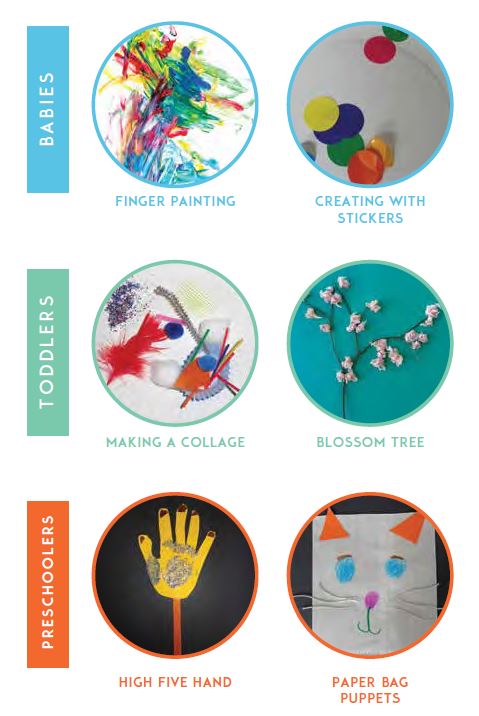Crafting Confidence in Children
Wednesday, July 12, 2017
It’s the process not the end result of craft that aids children’s development and confidence in a range of key developmental milestones. Here’s why we think craft is important for children and why we encourage Playgroups to offer craft.
How many families out there have a fridge over flowing with ‘craft creations’? How many of us at the end of Playgroup take home an extra bag of spaceships and glittery creations? So, is there a point to Playgroups offering varied craft activities each week?
In short, yes! There are many benefits to allowing children of all ages, the opportunity to participate in craft activities both at Playgroup and home. Craft activities can range from painting, to gluing, to collage or creating a masterpiece for the Christmas tree. It is important when we offer children the opportunity to participate in craft, that they are allowed to partake at their own pace and there is no pressure on the children to deliver the next Mona Lisa at the end of the session.
This is because it’s the process that is important for children, not the end product. When providing a set craft activity, try not to restrict the children in terms of materials either. If you are painting with brushes, but young Sammy has decided the kitchen sponge is far more interesting to paint with, then by all means let Sammy create!
What are the Developmental Benefits of Craft for Children?
Fine motor skills
Craft opportunities allow children to build bilateral coordination (using both hands together), the building blocks to learning to write and do up buttons later on for example. Fine motor skills are the use of hands and fingers in this context, and it’s important to develop these skills as they lead to completing daily tasks such as eating, using scissors and writing down track.
Relationships-self confidence
Joining in an activity like craft with your child allows the relationship between you and them to develop whilst allowing their self-confidence to grow. It provides children with a sense of accomplishment and pride when presenting their masterpiece to loved ones.
Social skills
Negotiating the use of the sticky tape and simply sharing a creative space with others allows children the chance to develop social skills, in particular negotiating how to operate in a group. Craft time also allows children to begin to learn to self-regulate in a group while waiting for the paint to be topped up or the patty pans to be shared out. Waiting in turn is a vital group norm. Working in a group environment or simply discussing the process required for the activity teaches children how to communicate and encourages a more varied vocabulary.
Imagination
The opportunity to allow children to build and create frees up their mind and assists in developing their imagination and creativity. Children can use their imagination to produce an image in their minds of what they want to create, then learn to plan and translate it into an end product. Remember, with children under the age of 5, it’s the process of creating, not the final product. All of the skills mentioned, plus other skills developed through regular attendance at Playgroup can help prepare children for Preschool/Kindergarten and School.
What Craft Activities Can You Offer at Your Playgroup or Home?
Here are some ideas appropriate for each age group and developmental milestone.
By Carley Jones, Executive Officer, Playgroup SA
This article was originally published in State of Play, Issue Two, September 2016

